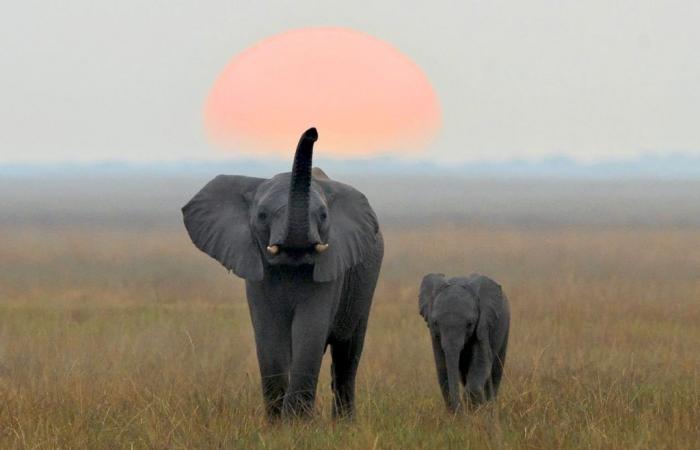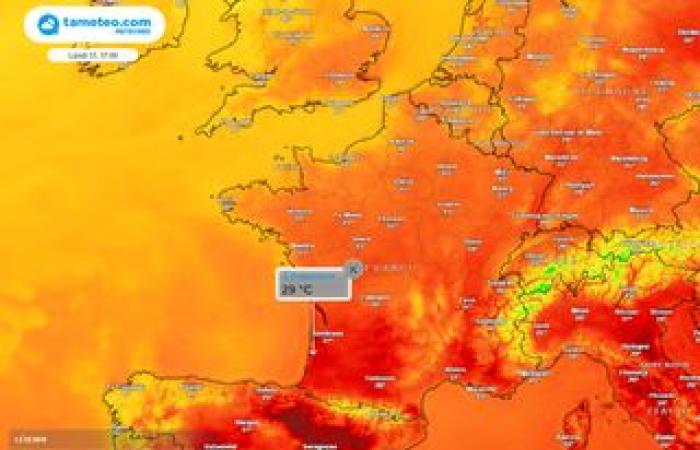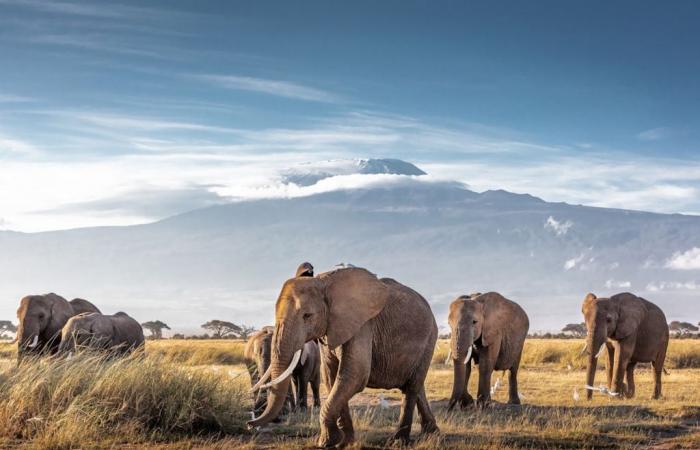Researchers from Colorado State University, Save the Elephants and ElephantVoices used artificial intelligence to make an incredible discovery: wild African elephants address each other with name-like calls, a rare skill among animals.
Unlike dolphins and parrots, which imitate the recipient’s call, elephants use arbitrary vocal labels, just as humans do with names.
An artificial intelligence system was able to confirm that the cries of elephants contained specific elements making it possible to identify the recipient, a hypothesis that researchers already suspected after observing them for many years.
Polar shift in France: when will warm air arrive in the country?

According to Michael Pardo, lead author of the study, this ability is very unusual and indicates that elephants have advanced cognitive ability. George Wittemyer, co-author of the study, suggested that this ability could indicate that elephants are capable of abstract thinking.
Elephants speak in more complex ways than we thought
Elephants, like humans, have complex social networks. This social need may have resulted in the development of a sort of arbitrary vocal labeling in both species – which, in our case, became our name.

The elephants communicate by voice, sight, smell and touch, transmitting information such as identity, age, gender, emotional state and behavioral context through their vocalizations.
Hundreds of recordings were analyzed during the study
To carry out this research, the scientists spent four years, including 14 months of field work in Kenya, to record 470 distinct calls from 101 communicating elephants and 117 receiving elephants. The recordings were made in Samburu National Reserve and Amboseli National Park.
They then used a new technique of signal processing and machine learning (artificial intelligence) to correctly identify elephants receiving calls based on acoustic characteristics. They discovered that elephants do not just imitate the sound of the individual being called, but that they use specific labels (names).
Elephant vocalizations, from their trunks to the low rumble of their vocal cords, cover a wide spectrum of frequencies, including infrasonic sounds below the range audible to the human ear. Elephants can coordinate group movements over long distances using these calls.
When the researchers played call samples, elephants responded energetically to recordings from their friends and family, thus demonstrating that they recognized their names. Calls to other elephants did not elicit similar reactions, which suggests that elephants are capable of understanding who the recipient of a message is.
Urgent desire to be in the great outdoors: how to go about it this summer during your hikes?

More data is still needed to determine whether elephants name other objects they interact with, such as food, water and places. As this research progresses, it is possible that one day we will be able to communicate directly with elephants using their own language, which would help prevent conflicts between humans and elephants, as well as alert them to imminent dangers, thus contributing to their survival.
Article reference:
Michael A. Pardo et al. African elephants address one another with individually specific name-like calls. Nature Ecology & Evolution, 2024.










